Discover The AI Report Live
The AI Report Live

The AI Report Live
Author: The AI Report
Subscribed: 28Played: 720Subscribe
Share
© The AI Report
Description
We’re the team behind The AI Report — the #1 AI newsletter for 400,000+ business leaders at Google, Microsoft, OpenAI, and more. Each week, we cut through the noise with expert conversations on how AI is transforming business.
Expect deep dives into real-world use cases, practical strategies for leaders, and insights you won’t find anywhere else. If you want to understand AI in a way that drives results for your team, company, and career — you’re in the right place.
👉 Subscribe now and join 400,000+ professionals mastering AI in business.
https://newsletter.theaireport.ai/subscribe
Expect deep dives into real-world use cases, practical strategies for leaders, and insights you won’t find anywhere else. If you want to understand AI in a way that drives results for your team, company, and career — you’re in the right place.
👉 Subscribe now and join 400,000+ professionals mastering AI in business.
https://newsletter.theaireport.ai/subscribe
110 Episodes
Reverse
In this episode of The AI Report, Liam Lawson sits down with Jérémy Grandillon, founder of TC9, to explore how AI is disrupting the sales landscape and changing how businesses approach growth.
Jérémy shares his journey from corporate sales to building an AI-driven agency that automates prospecting, personalizes outreach, and drives meaningful results. From using AI to handle the grunt work of lead generation to leveraging LinkedIn for strategic content creation, this episode dives into how AI is empowering sales teams to focus on what matters most—building trust, closing deals, and scaling with impact.
Discover how AI tools are revolutionizing B2B sales by simplifying complex workflows, increasing efficiency, and delivering real results. Jérémy also shares the story behind TC9’s mission to merge advanced AI capabilities with human creativity, creating tailored strategies that meet the unique needs of clients.
This conversation breaks down how businesses can use AI to reduce manual labor, boost productivity, and accelerate growth, while still maintaining a personal touch in their sales approach.
Curious about how AI can help you close more deals and increase revenue?
Tune in now and don’t forget to like, comment, and subscribe for more conversations like this!
Learn AI in Just 5 Minutes Per Day: https://www.theaireport.ai/
Check out TC9, AI systems that book meetings for you https://tc9.ai/
Connect with Jérémy: https://www.linkedin.com/in/jeremygrandillon/
(00:00) Introducing Jérémy Grandillon
(02:34) AI’s Role in Sales Prospecting
(05:32) How AI Evolved in 2025
(09:09) Jérémy’s Journey to Entrepreneurship
(12:50) Allbound Sales Explained
(17:08) Inbound vs. Outbound Sales
(22:44) US vs. European Sales Approaches
(24:29) Pricing Strategies That Work
(27:16) From Solopreneur to Agency
(32:27) AI and Human Synergy in Sales
(36:18) Building A Solid Offer
(41:22) Patience and Resilience in Sales
(46:00) Discipline and Health for Success
(52:05) Planning for Long Term Business Success
It's easy to get caught up in AI fear, specifically the fear of being replaced. We talked about as much in our last episode. However the more relevant fear we should be focused on is the fear of being tricked.
If the era of fake news and the emergence of deep fakes wasn't enough, now we need to contend with the reality that most major tech companies don't actually care what's being shared, taking the stance that it's up to us to decide what's real as long as they're getting their clicks.
Last time we talked about the need to rediscover out capacity to think critically. This time we're showing you why. Alongside previous guest and friend Casey Fox, founder of Tekletics, we took on a project that showed us just how easy it was to break Twitter, and virtually any media platform, all by following the rules.
You're going to want to see this going into the U.S. election next week.
Shiny new toys are great and all, but there's really only one question nearly all of us are asking when it comes to AI: are we in danger of being replaced?
AI thinks faster, combines data more effectively, and isn't burdened with inefficiencies like bathroom breaks and a need for social connections. So how do we fit into all of this? And what do we do to get ready?
We're on with Pascal Bornet, a living legend in the AI world with over 20 years experience in automation. Drawing from his experience living in working everywhere from France and China, to Singapore and the United States, he shares what he's learned about the direction AI is taking, what we can do to get ready for the coming changes, and how getting ready for the future means tapping into ancient wisdom.
Just a few decades ago, about 90% of legal defendants could count on having effective legal counsel throughout their proceedings. Today, that figure has completely inverted. Due to rising costs within the legal system itself, as well as other factors, more people than ever are trying to navigate a system with very real and far-reaching consequences in their lives with no training and little guidance.
Sam and his team are working to fix that.
A former attorney, Sam leveraged his experience to build several tools that guide people through their legal challenges, and hopes to continue his fight to bring access to legal resources to everyone. Join us today as we hear his perspective on the future of legal representation, and his story about how he took on the Australian government and won.
Whether you're a first time listener or a longtime fan, you're safe to think we're pretty AI forward here. But in all our talk about AI being the future, it can be easy to lose sight of the actual future: our kids.AI is bringing up all kinds of issues critical for both society at large and individual parents, like me. What kind of world are we creating? How will our kids find their place? What does their education to get them ready look like?We're on with Edward Glassman, faculty and leading voice of the AI Task Force at Philadelphia's prestigious Springhill Chestnut Hill Academy, on what it looks like to raise the entrepreneurs of tomorrow, how to navigate AI in the education space, and what it means to be a parent and teacher in this age of transition.
Data makes the world go round. And with the advent of generative AI, it's not going to slow down. If that makes you uncomfortable, you're not alone.
Today we have Dr. Philip Seegers, labor economist and researcher, on how data really does make incredibly accurate predictions of success in both education and work, and why gen AI is something we genuinely need to embrace... IF we can do a better job of addressing our own biases.
We're on with Damien Riehl, the man who famously copyrighted every melody that is and ever will be, only to put them in the public domain. His reasoning: to raise the bar of what we've traditionally thought of as "creativity". Join us as we explore why we should question the idea of people being able to trademark and patent creativity, as well as what the rise of AI means for artists, musicians, and creators.
AI is changing the employment game on both sides. Applicants are looking for new ways to differentiate themselves and remain relevant, while employers are trying to balance rapidly shifting technology alongside very real security and liability concerns.
Perhaps no one is better positioned to share insight into this tug of war than Santiago Nisnik, head of product development at Athyna (one of the leading international hiring firms). From the perspective of years of data, coupled with hundreds of applicants and employers, Santiago shares why AI is about to transform the hiring process and how new opportunities will touch the global employment pool.
I've said this before, and I'll say it again:AI isn't smart, it's fast.It can't "take" your job, especially if you're staying on top of things. Yes, there's a steep learning curve to using generative AI. But if we're honest, that curve is less about the technology and more about the fact that humans are just naturally obstinate creatures.To help drive this point home, we're on with Ray Hayden, Senior instructional designer at the Society of Human Resource Management (SHRM to its friends), who shares his thoughts on why it can be hard to learn something new, and why the success of AI is impossible without the human touch.
Though AI gets thrown around a lot, the reality is the underlying architecture has been around for a LONG time. Specifically, predictive analytics has been a lynchpin of everything from economics and farming, to baseball and video games.
One of the most important, and lesser known, implementations is the U.S. college admissions process. Over the last few decades, the cost of higher education in the United States has skyrocketed (with no signs of slowing down). Much of this has to do with predictive analytics and the business of "strategic enrollment management". That is, the science of maximizing students applications while minimizing financial aid.
We're on with Alan Katzman, founder of Social Assurity, on how he's watching the data flow from students to college, his experience around the metrics that dictate who gets how much for college, and his thoughts on how AI is primed to upend the entire system.
With so much clickbait, you'd be forgiven for thinking generative AI was only for making pictures of world leaders as animals and frightening us with imitations of consciousness. But the possibilities of generative AI are endless, especially when combined with existing technology like Wifi.
We're on with Origin Wifi CCO Tony Nicolaidis on what exactly is wifi sensing technology, why it's primed to disrupt everything from security to daycares, and how AI is boosting it's processing on an exponential curve.
Generative AI is everywhere, it's the new thing we all can't stop talking about, no matter how much the reasonable people around me ask me to.
But despite how dominant it is, it's not the end all, be all. Generative AI probably isn't taking your job, and it's almost certainly not going to take over the world. At worst, it's going to give you something new to have to learn, and at best, it'll be a massive boost in your productivity. So why is it so hard for us to just... chill?
Ash Garner, Co-Founder of tomoro, is on today giving us his perspective on while almost every business has a use for AI, successful integration relies on focusing on the problem to be solved rather than an abstract need to "stay ahead".
We humans are funny. On the one hand, we're all about innovation and progress. Yet on the other, we can't help but speculate about endless doomsday scenarios. From ancient apocalypses to Y2K and 2012, we love to focus on the next thing that will definitely destroy us. AI is the next end du jour.
But not everyone sees it that way.
Dr. Sam Samman, with scroll of credentials and veritable alphabet of honorifics, sees a near future where humans are augmented by AI. One where the speed of innovation is limited only by the speed of thought. In this future, as in the title of his book, we all attain the Singularity of Hope.
Click to order your copy of The Singularity of Hope.
We're all adverse to change. If you think I'm wrong, ask your therapist.But if you've been anywhere near the internet this last year, I think you'd agree that change is actively happening, right now. The explosion of generative AI shows no signs of slowing down, promising a seismic shift in how we interact with and leverage technology in virtually every aspect of our lives. It's exciting, wondrous, and definitely scary.We're on today with Tak Lo, founder, veteran, and serial entrepreneur on what it means to retain the singular quality that separates us from AI, and how we should all strive to reconnect with that humanity as leaders for our organizations and ourselves as we enter the age of Artificial intelligence.
How do you feel about AI giving you financial advice or a medical diagnosis? Would you be comfortable on a transcontinental flight knowing it's piloted by a machine?
Jared Bonilla, fractional CAIO gives his perspective on the changing face of the workplace and why humans will always want another human to be part of their world.
Think of all the do-overs you'd take if given the chance: businesses, investments, relationships... It's not often in life we get second chances. Which is one of the reason AI is so exciting. It's nearly unbelievable to be riding a wave of change that starts with the technology, builds on the professional, swells in the social, and crashes into philosophy. We're live with Anne Murphy, 25 year veteran fundraiser and early AI adopter to ruminate on how AI is poised to shake up everything from corporate workflows to gender dynamics. I'm Arturo and this is AITR Live.
As exciting as it is to delve into the theory and policies that drive AI innovation, sometimes we need to ask "but how do I implement it"? Today we're doing thing differently. We're on with Louis Shulman, co-foudner of inbox ghosts, to get into the details of how to scale AI-powered newsletter copywriting business. And as an added bonus, we have our editor in chief and resident digital nomad Liam Lawson doing the interview. I'm Arturo, and this is AITR Live. Without me.
It seems impossible to say "diversity" these days without igniting a firestorm. It speaks to the challenge humans have separating who we are from what we were taught. Beyond it being simply the right thing to do, there's empirical data that proves companies committed to diversity and equality consistently show a more profitable bottom line.We sit down with Zev Eigen, MIT graduate and the co-founder and chief data scientist at Syndio who's made it his life's work to balance the hiring and pay scales at companies as he shares what makes his work fulfilling and his vision for how AI will shape the future of human employment.
The banking industry doesn't garner much sympathy. Likely even less once you learn they spend most of their time reacting to new regulation rather than proactively evolving their processes. Christos Markidis hopes to fix that. Today he shares why AI is a significant leap forward for the banking industry, and what he hopes the future brings.
With thousands of tools out there, how to do you know where to start your journey? Our very own Liam Lawson talks about boosting his productivity, upscaling the AI Tool Report, and which tools everyone should start using to maximize their workflow.



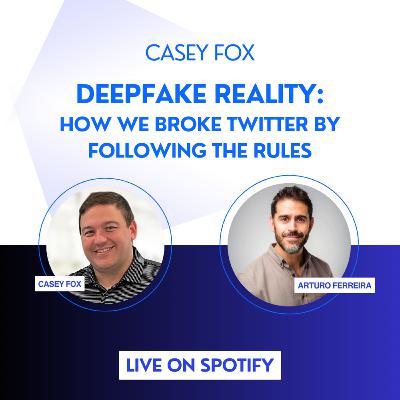
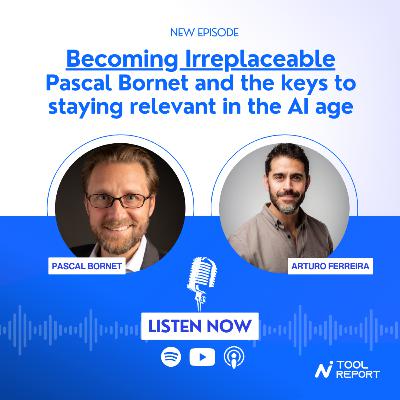
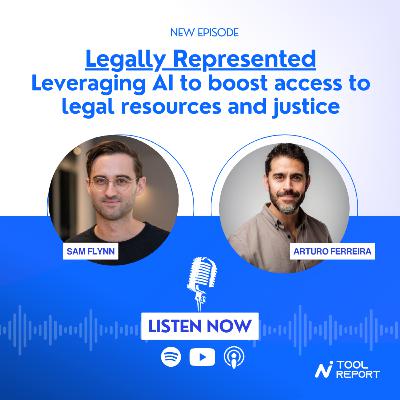
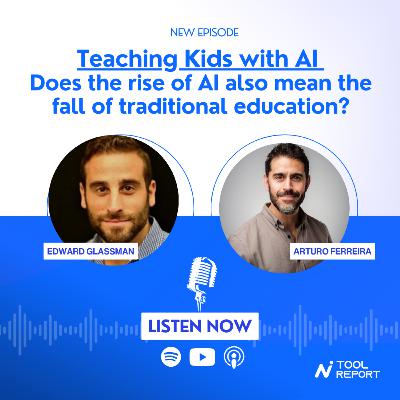
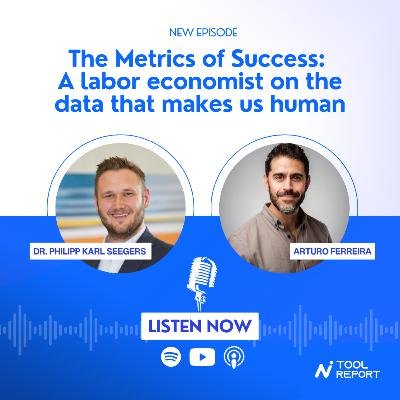
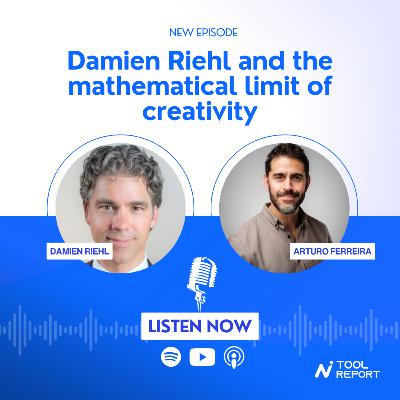
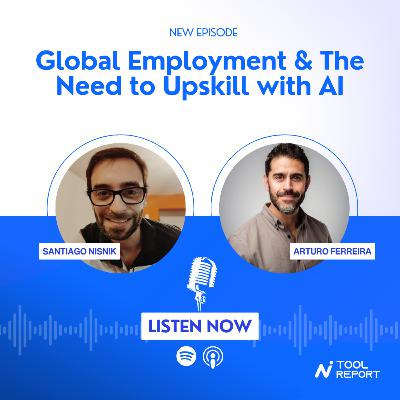
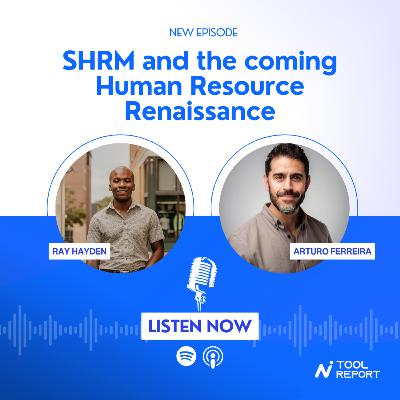
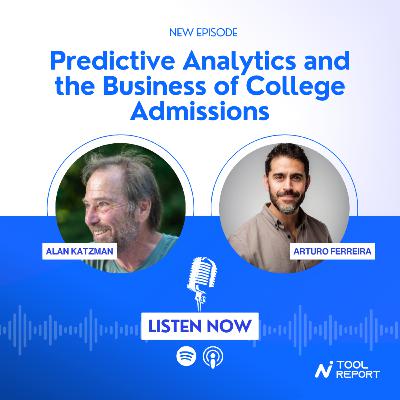

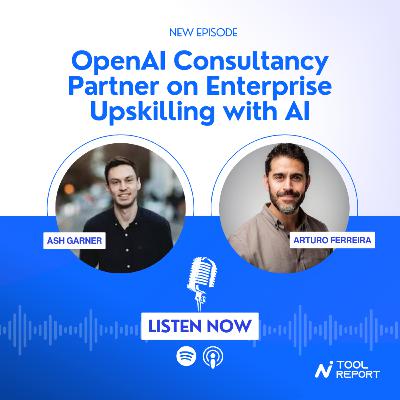
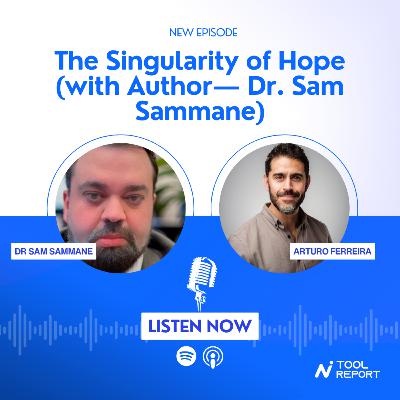
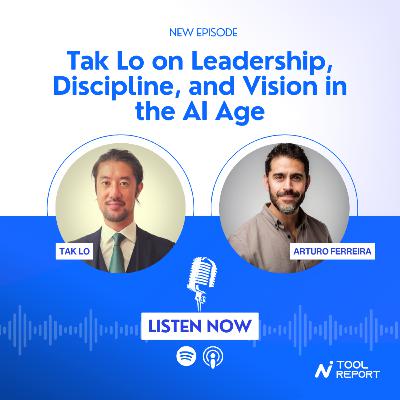
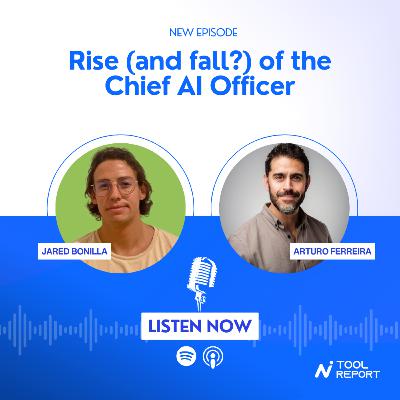
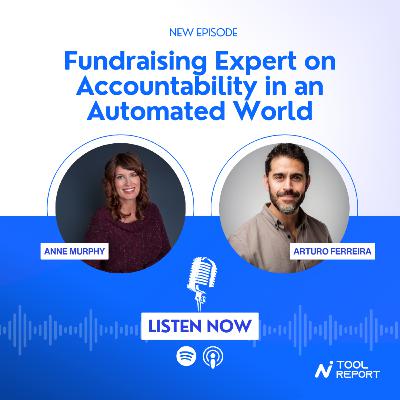
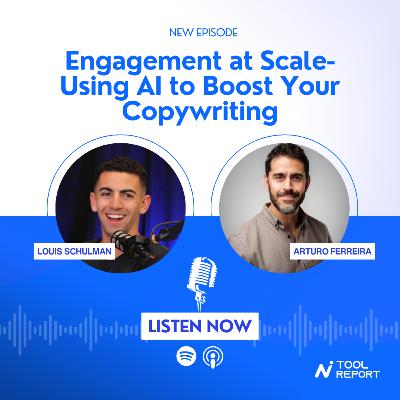
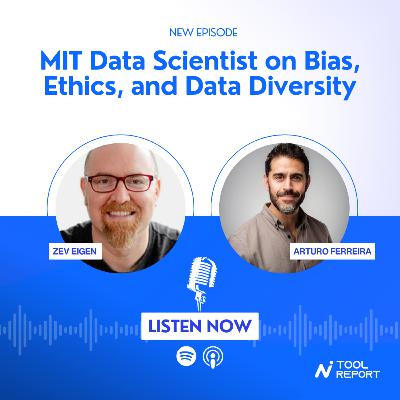





the development of advanced microscopy techniques, such as super-resolution microscopy, has revolutionized our ability to observe molecular and cellular processes in real-time. These cutting-edge techniques push the boundaries of resolution and allow scientists to visualize dynamic processes at the molecular level, providing unprecedented insights into the mechanisms of life to https://microscopeforkids.co/products/stem-kids-portable-microscope.